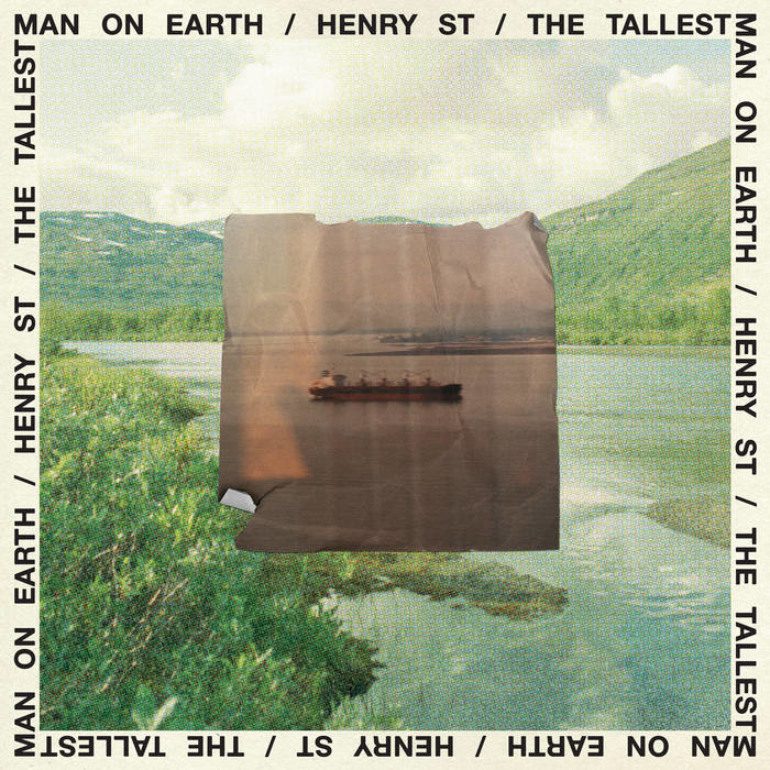

A Quest for All of the Good Things
Kristian Matsson, also known as the Tallest Man on Earth, found himself cultivating his garden and the mechanisms of his craft. 2020 not only put a pause on the world at large but his time spent traveling, touring and living in New York City.
After moving home to Sweden, he encroached upon a self-described “darkness” that aided in the realization that he needed movement to fuel his imagination and instinctual musical ideals. The time spent tending to his garden is apparent in his newest album. In a departure from his solo creative roots, Matsson released his new studio album, Henry St., in 2023, with a full band comprised of chosen friends. It is a juxtaposition between his rural nature and previous world travels which aid in the diversity of sounds and instrumentation. Henry St. is a collective rumination on his journey, reflecting on the impermanent nature of time, self-examination and what it means to dream. The lyrics are an existential reflection on life as he knew it.
The album opener, “Bless You,” is lavished in Matsson’s raspy folk tones, accentuated by the soft strum of classical guitar and trill of a piano. The upbeat tempo gives reprieve to the lyrics as Matsson reckons with the loneliness. Using astute imagery, he describes tending to cherry trees in his garden, and then translates the thought into his own impermanence as they “won’t even slumber” when he dies. He furthers this idea by comparing his youth to ashes and looking back to see them “gently smoking,” only later to feel them “softly blowing” in the wind. By giving in to the nature of mortality, he reckons with the “lonesome side of times.”
In connection with the opening track, “Looking for Love” continues the image of being “tied to the wind,” except this time, he is on the precipice of a life-changing decision. Having practice in flight with “humbling old wings” and recognizing that someday we will all disappear, Matsson’s musings reflect on what it means to spend an entire life searching for meaning. A burgeoning drumbeat opens the song, accompanied by piano and acoustic guitar. Matsson’s vocals dynamically alternate between major and minor shifts. Imagine driving in a car with the windows down, a hand out riding the wind – that is what this song feels like.
“Every Little Heart” subtly alternates between classical Spanish guitar, with a nod toward the folky signature aesthetic that Matsson relishes in. “Slowly Rivers Turn” finishes with a thrumming bass-line into a saxophone serenade. “Major League” is steeped in imagery of American dreams and idealism, while banjos and lap steel whittle down to an old Appalachian folk sound.
The penultimate moment of lyrical introspection and musical vulnerability is the title track. Like a crooner in an old smoky hotel bar, Matsson’s emotionally charged “Henry St” reconciles with the notion of missed opportunities and impossible dreams. The image of youthful innocence embarking toward success in New York City is directly contradicted in a lyrical haze of self-doubt and insecurity. Matsson asks, “Will I light up here tomorrow? / Will I meet myself today?” Comparing himself to a swimmer in his own world, a wishing well, Matsson recognizes the fragility of the life he has chosen. As he sings “I feel it all / I just feel it wrong,” the crooner in the bar is more like a lonesome man in a mountain cottage. Old wooden floorboards hardly hold up the lone piano he is hunched over as he concedes to his love, his music, bleeding out his final notes.
“Foothills,” a slow acoustic song with piano and organ accompaniment, is a daydreamer’s melody. The culmination of the album’s themes and earthly aspirations all build toward this moment. Matsson gutturally concludes that in life and love he does not “need to be a winner,” and in a somber vocal plea of desperation he “hopes he tastes alright” to the vultures above. He is okay with just being the singer; he will navigate the rivers and seas of life aboard his ship, and though there may be wrecks in his wake, he no longer tends to the fire “on the foothills of [our] dreams.” Instead, he will latch on to what he has, what he knows and what he has forged for himself.
It is the albums’ ability to draw the listener into Matsson’s world that aids in the realization that the nature of being is not so much about what we do, but how we do it and who we do it with. Or, as Matsson puts it, it’s “having fun and being really open with each other.”
